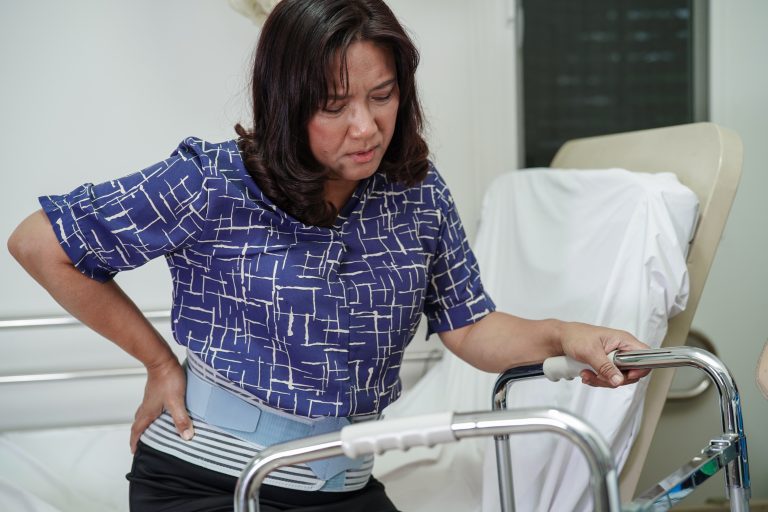Proximal neuropathy is a specific type of nerve damage that affects the hip, buttock, or thigh. It usually only affects one side of the body but can still affect both sides in rare cases. This type of nerve damage can cause debilitating symptoms. This in turn can have negative effects on your work and lifestyle.
If you are unsure if you have proximal neuropathy, the first step should be to consult a doctor but you should also focus on educating yourself on the condition. BEST Health System is a strong supporter of patient education. We understand that any condition can have its set of complications so we believe the best way to handle a debilitating condition is through patient education. This guide will help you understand proximal neuropathy and how it can affect you.
What is Proximal Neuropathy
Proximal neuropathy occurs when your nerves are damaged and symptoms depend mainly on what nerves are affected by the neuropathy. The pain associated with neuropathy will typically only affect one side of the body but if left untreated will spread to the other side as well. Symptoms start mild and progressively get worse. It can cause weakness in proximal muscles in the lower limb which can lead you to be unable to stand from a sitting position without help.
One of the major causes of proximal neuropathy is high blood glucose, also known as high blood sugar, paired with high levels of fat in the blood from diabetes can lead to nerve damage which leads to proximal neuropathy.
Symptoms of Proximal Neuropathy
Symptoms for proximal neuropathy can vary among patients depending on the nerve damage and its severity. The most common symptoms include:
- sudden and sometimes severe pain in your hip, buttock, or thigh
- weakness in your legs that makes it difficult to stand from a sitting position
- loss of reflexes such as the knee-jerk reflex—the automatic movement of your lower leg when a doctor taps the area below your knee cap
- muscle wasting, or the loss of muscle tissue
- weight loss
Diagnosis of Proximal Neuropathy
As with any diagnosis, your doctor will ask about your symptoms, review your medical history and run some tests to confirm whether or not you have proximal neuropathy. Some tests can include nerve conduction studies which assess how fast electrical signals move through your nerves and electromyography (EMG) to show how your muscles respond to your nerves.
How Proximal Neuropathy Can Affect You
The symptoms of this condition can affect your life in many different ways. If you are active and enjoy sports proximal neuropathy can keep you from being able to participate in sports. The pain would be too uncomfortable and it is not recommended to participate in sports not approved by a physician.
If you have an active job, where you are on your feet all day, you may need to take some time off depending on the severity of proximal neuropathy. Whilst having an office job where you are sitting for most of the day, proximal neuropathy can affect your ability to stand after long periods of sitting down.
If you are diagnosed with proximal neuropathy, it will be very difficult to adapt to the changes this condition brings. BEST Health System is here for you. We can help you develop a treatment plan that fits your needs. We want you to get back to those activities you miss as soon as possible.
Your Treatment Options
Similar to symptoms, your treatment options will depend on the nerve damage you have. Managing diabetes, for example, is usually the first step in treatment to help relieve painful symptoms. Managing diabetes can include keeping track of your blood glucose, blood pressure, and cholesterol. The following are other forms of treatment for proximal neuropathy your doctor may recommend:
- Medication. This can range from over-the-counter medication to nonsteroidal anti-inflammatory drugs (NSAIDs) both of which help with pain management
- Physical Therapy. This will help increase your strength and help get back to daily activities. It can also bring back feeling in the limbs.
- Corticosteroid Injections. This treatment option is also used for pain relief if medication is ineffective.
It is possible to recover from proximal neuropathy without the need for treatment but more often than not a treatment plan must be made to provide you with proper pain relief. It is highly recommended to quit smoking and drinking alcohol if you have been diagnosed with proximal neuropathy.
How BEST Health System Can Help
In rare cases, symptoms can persist even after attempting a number of conservative treatments. If you are unable to find the relief you need, you may want to consider surgery as an option. Worry not, at BEST, we take pride in our minimally invasive techniques. We use a less than one-inch incision and our muscle-sparing techniques shorten recovery time and eliminate the need for an overnight hospital stay. These benefits will help you save money, and time, and get you back to the activities you love.
If you would like to learn more about BEST Health System and our procedures, feel free to contact us today!
